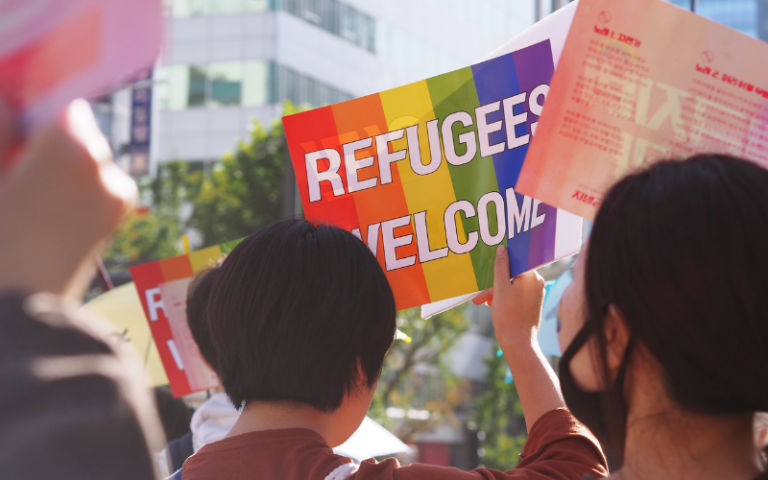Telling stories about LGBTIQ+ forced migration
03 March 2022, 1:00 pm–2:00 pm

This Lunch Hour Lecture will look at how we tell stories about the forced migration of LGBTIQ+ people.
This event is free.
Event Information
Open to
- All
Availability
- Yes
Cost
- Free
Organiser
-
UCL Events
Book your place
About the lecture:
For over twenty years, sexual orientation and gender identity have been used as grounds to grant asylum in the UK. With this, a new figure has emerged in the public consciousness: the queer refugee. The way they are represented and understood in the public sphere relies mostly on telling stories about their experiences, from their journey to the UK to the claiming of asylum. In this talk, Dr Thibaut Raboin will look at how we tell stories about the forced migration of LGBTIQ+ people: the way they are used by the state to make asylum decisions, as well as the way advocates and activists rely on them to call for a more just system. Finally, looking at art projects, Dr Raboin will ask: can queer refugees use storytelling as a tool for emancipation and reinvention?
About the Speaker
Dr Thibaut Raboin
Lecturer at Department of French – School of European Languages, Culture and Society, UCL
Dr Thibaut Raboin's research focuses on the study of public discourse about social suffering, in particular around the configuration of social problems. He has worked on migration, sexuality and nationhood, with a book with Manchester University Press entitled Discourses on LGBT asylum in the UK (2017). The book explores the way the social problem of LGBT asylum is conceived of in relation to questions of nationhood, human rights and forms of neoliberal optimism.
Dr Raboin is currently working on the cultures of deindustrialisation in the Lorraine region in France. It evaluates how, since the steelworker marches of 1979, writers, film-makers and artists have found the changing region of Lorraine a fertile ground for conflicting visions of work, migration, poverty, ruination and memory.
 Close
Close

